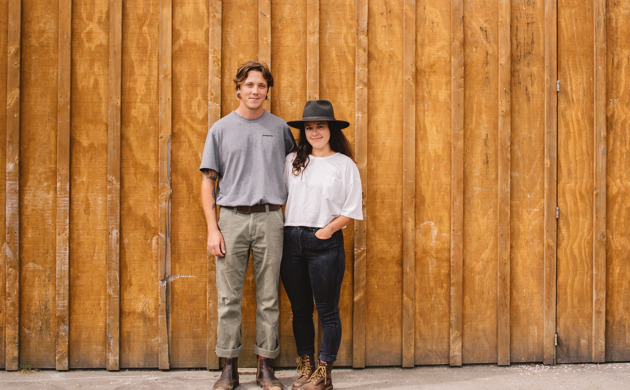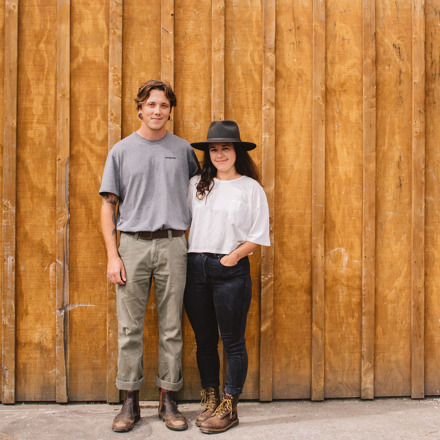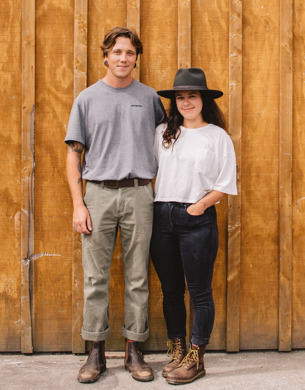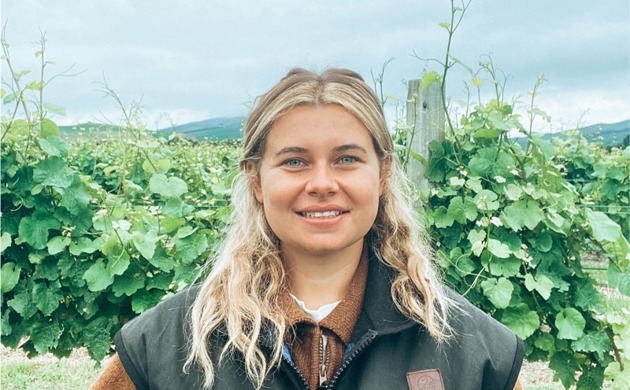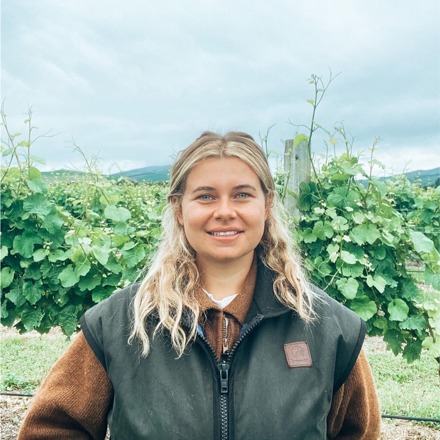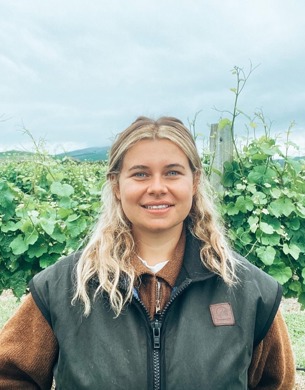Sophie Preece

Michelle moved to Aotearoa in late 2015, wanting to experience a different culture while putting a degree in environmental science and Masters in soil science to work in the agri-environmental sector. When she was grappling with visa renewal, Michelle discovered that working in viticulture or horticulture was just the ticket. “Somewhere along the road I had heard about the concept of terroir and understood soil to be an integral part of the terroir paradigm,” she says.
Michelle swiftly found a role as Viticulture Technician at Craggy Range’s Te Muna Road vineyard in Martinborough and instantly fell in love with the industry. “The vines, the wine, the beauty of the landscape and the comaraderie all swept me off my feet.”
“Somewhere along the road I had heard about the concept of terroir and understood soil to be an integral part of the terroir paradigm.”
In 2016 Michelle moved to Marlborough, where she worked for a number of wine companies as a viticulture technician, cellar hand, and vineyard manager, interspersed with work overseas in wine sales and a harvest in Germany. In the meantime, she and her winemaker partner established their own small wine company.
But despite all the talk of terroir, Michelle came to see that dealing with soil and land management issues was low on the list of priorities for the wine industry. “And when winegrowers might have time to consider these things, they quite often don’t know what to do or where to start to make change.” That realisation led her to join BRI in 2019, to assist with its soil and land management extension and research needs. Her work with BRI includes several research projects, from investigating the impact of undervine management practices on soil microbial communities to exploring the global market potential for regeneratively produced red meat and wine products from New Zealand.
“The vines, the wine, the beauty of the landscape and the comaraderie all swept me off my feet.”
In her application to the Bragato Trust, Michelle said joining BRI exposed her to the financial considerations of vineyard management “and how financial uncertainty around the impact of changing land and soil management practices to those that could have a more positive environmental impact, limits practice and land use change”.
She also realised the industry did not recognise the “huge contribution” nature makes to the sector, in the form of ecosystem services. “Concurrently the impact of land management decision- making on our natural assets and how this might impact on long term business performance and industry resilience is not considered in business or industry decision making.”
These realisations sparked Michelle’s interest in agricultural economics, leading to her PhD research. “Diversifying and adapting production systems is necessary
to future-proof our wine industry for the challenges and opportunities associated with climate change, societal expectations, and market value capture,” she told the Bragato Trust.
With its high degree of specialisation, monoculture and regionalisation, the Marlborough wine region is well positioned to capitalise on diversification, she says. Her project will develop a Marlborough case study, identifying and assessing the performance of long- and short-term diversification options, and their “ability to perform environmentally and economically across various temporal and spatial scales”.
The Bragato Trust
The Bragato Trust was formed in memory of viticulturist and visionary Romeo Bragato, who trained at the School of Viticulture and Oenology in Conegliano, Italy, from 1878 to 1883. Romeo was the Victorian Government Viticulturist Expert from 1888 to 1901, and visited New Zealand in 1895 and 1901, before moving here in 1902, and serving as New Zealand Government Viticulturist until 1909. The Bragato Trust was enabled by a bequest from the estate of the late Jan Colville, granddaughter of Romeo and Laura Bragato and a grant from the New Zealand Grape Growers Council. The trust’s scholarships aim to support research relevant to the viticulture and wine industry, and to promote the development and dissemination of viticulture knowledge and practice in New Zealand. For more information go to nzwine.com/en/events/bragato-trust-scholarships
This was first published in New Zealand Winegrower magazine issue 136 and is republished with permission.





